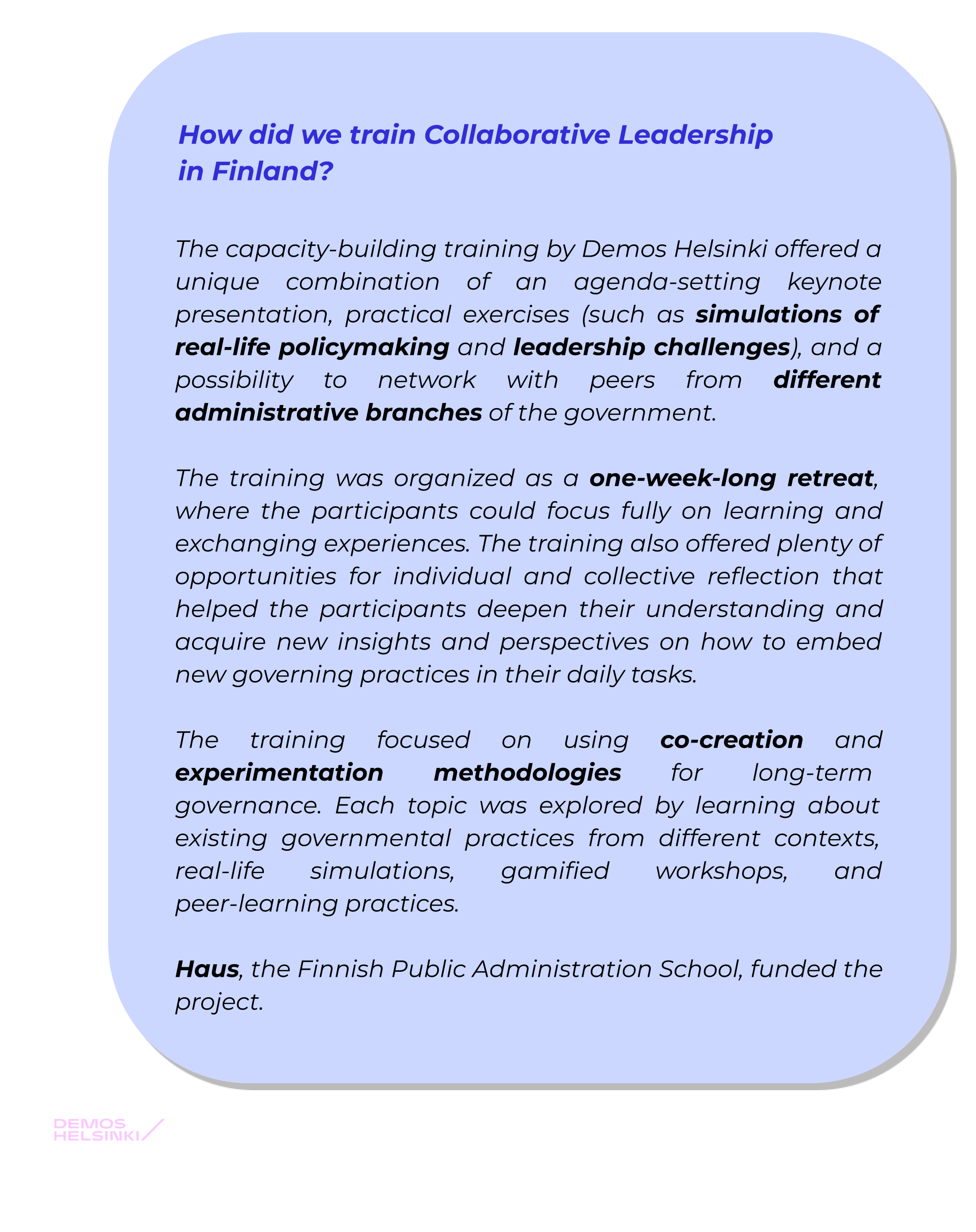The Finnish public service has been praised as an exceptional case combining strong institutions, stability, trust, transparency, and ambition to apply innovative approaches. In the last decade, the country nurtured a widely acclaimed ecosystem where foresight leverages multidisciplinary expertise, encompasses different levels — such as ministry and regional — and is sustained by structures and processes — such as the Parliament’s Committee for the Future and the Government’s Report on the Future. Moreover, Finland has become a global pioneer for developing experimental approaches in policymaking, with Universal Basic Income being the most well-known example.
Finnish public administration has implemented various reforms in steering, one to align strategic decision-making throughout the government (OHRA) and another to support the implementation of strategic governmental programs (PAKURI). Finland has also prioritized digital governance and created mechanisms to strengthen the knowledge-base of leadership, as with the Innovation Fund Sitra and also the creation of the Strategic Research Council in the Academy of Finland.
Capable leadership has been key to championing new methodologies and practices of government in Finland. Yet, no leader would have been able to do so without the support of a genuinely collaborative operating environment.
Demos Helsinki built a training program for the Finnish Government’s senior executives to:
- Fertilize the ground for collaborative leadership so that it grows beyond individuals and infuses entities and units.
- Create a fruitful combination of experimentative, long-term, and co-creative governance approaches.
- Help them explore and embed co-creation, foresight, and experimentation in their leadership styles.
Why Collaborative Leadership?
Traditionally, governments are constructed of units — silos — that look at societal phenomena from their specific perspective. However, the 21st century urges governments to steer societal dynamics that go well beyond organizational and institutional silos. Moreover, the traditional institutional setting of the government in Finland, and more or less everywhere else, does not support cross-sectoral collaboration on cross-cutting phenomena. The collaboration between units and agencies within the same administrative branch often lacks the means and platforms for interacting sufficiently.
Building collaborative leadership in practice entails:
-
leveraging co-creation methodology in civil servants’ daily work,
-
improving civil servants’ ability to collaborate across institutional silos,
-
involving private actors as well as citizens in public policymaking processes,
-
devising organizational solutions that can facilitate the definition of cross-cutting operational agendas, as well as knowledge sharing and resource pooling practices.

All present leaders need collaborative capabilities. Those who develop them will be the leaders of the future.
This training program is part of our mission to empower a civil service fit for the 21st century.
To build a training program specifically targeted to your civil service, please contact:
Mikko Annala
Transformative Governance Lead
mikko.annala@demoshelsinki.fi
Mikael Sokero
Senior Expert
mikael.sokero@demoshelsinki.fi
See other examples of our training programs here:
- Building capacities for a 21st-century civil service
- Train-the-Trainers program for Latvian policy planners
- Training Agile Leaders in Bahrain
- Capacities for anticipatory policymaking in North Macedonia
Feature Image: Marko Hannula / iStock